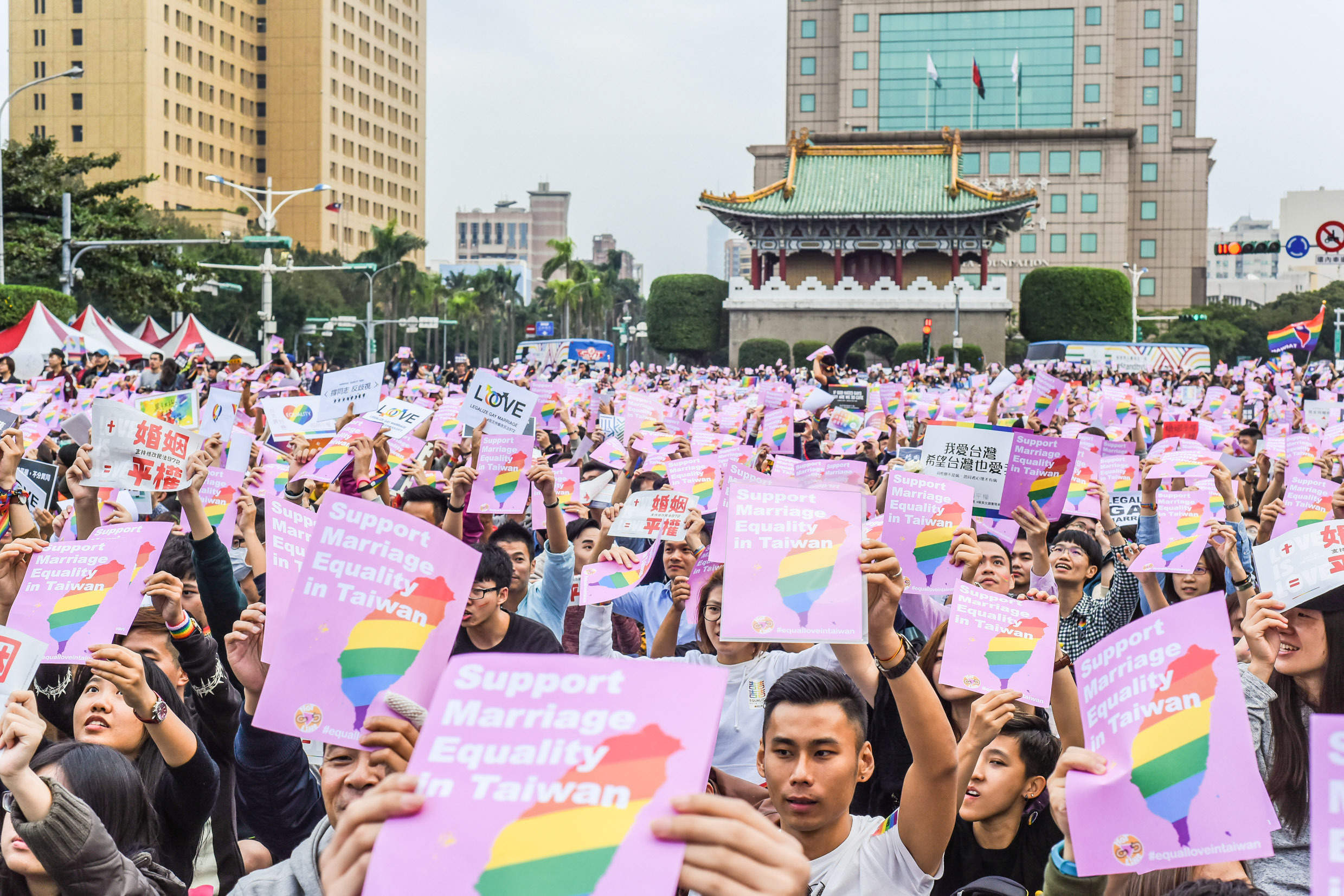
The highest Taiwan court has ruled in favour of gay marriage, meaning the state could become the first place in Asia to legalise same sex marriage.
In the landmark ruling, the court said Taiwan’s current Civil Code, which says that marriage can only be made between a man and a woman, “violated” the constitution’s guarantees of freedom of marriage and people’s equality.
Taiwan’s parliament, known as the Legislative Yuan, now has two years to implement the ruling.
It can either legalise same-sex marriage or introduce new legislation allowing for civil partnerships.
Whilst it is groundbreaking that an Asian state will legalise gay marriage, Taiwan is known for its liberal values and holds the biggest annual gay pride event in the region.
Momentum for marriage equality has been building thanks to the presidency of Tsai Ing-wen, who is openly supportive of the policy.
How well do you really know your competitors?
Access the most comprehensive Company Profiles on the market, powered by GlobalData. Save hours of research. Gain competitive edge.

Thank you!
Your download email will arrive shortly
Not ready to buy yet? Download a free sample
We are confident about the unique quality of our Company Profiles. However, we want you to make the most beneficial decision for your business, so we offer a free sample that you can download by submitting the below form
By GlobalDataA bill to legalise same-sex marriage has already been making its way through parliament but the process has slowed as a result of opposition from conservatives and the mass protests that have taken place in recent months.
The outlook is for same-sex marriage is not so rosy across other countries in the region. In Indonesia, two men were publicly caned 83 times each after being caught having sex, in the country’s Muslim province Aceh.
In addition, 141 men were arrested in Jakarta in a raid on what the police said was a “gay party”.
In Bangladesh, 27 men were arrested recently on suspicion of being gay.
Homosexuality is considered a crime in Bangladesh and the founder of the country’s only LGBT magazine Roopbaan, Xulhaz Mannan, was killed in his home in April last year.
International organisations have been focusing on so-called gay concentration camps that have been established in the southern Russian republic of Chechnya.
In April, 100 men were detained and three were killed because of “their nontraditional sexual orientation, or suspicion of such,” according to the Russian newspaper, Novaya Gazeta.
Human rights experts at the United Nations (UN) have urged the Kremlin to investigate the reports of gay men targeted and detained in this manner.
“It is crucial that reports of abductions, unlawful detentions, torture, beatings and killings of men perceived to be gay or bisexual are investigated thoroughly,” said the experts in a statement posted to the website for the Office of the UN’s high commissioner for human rights.







